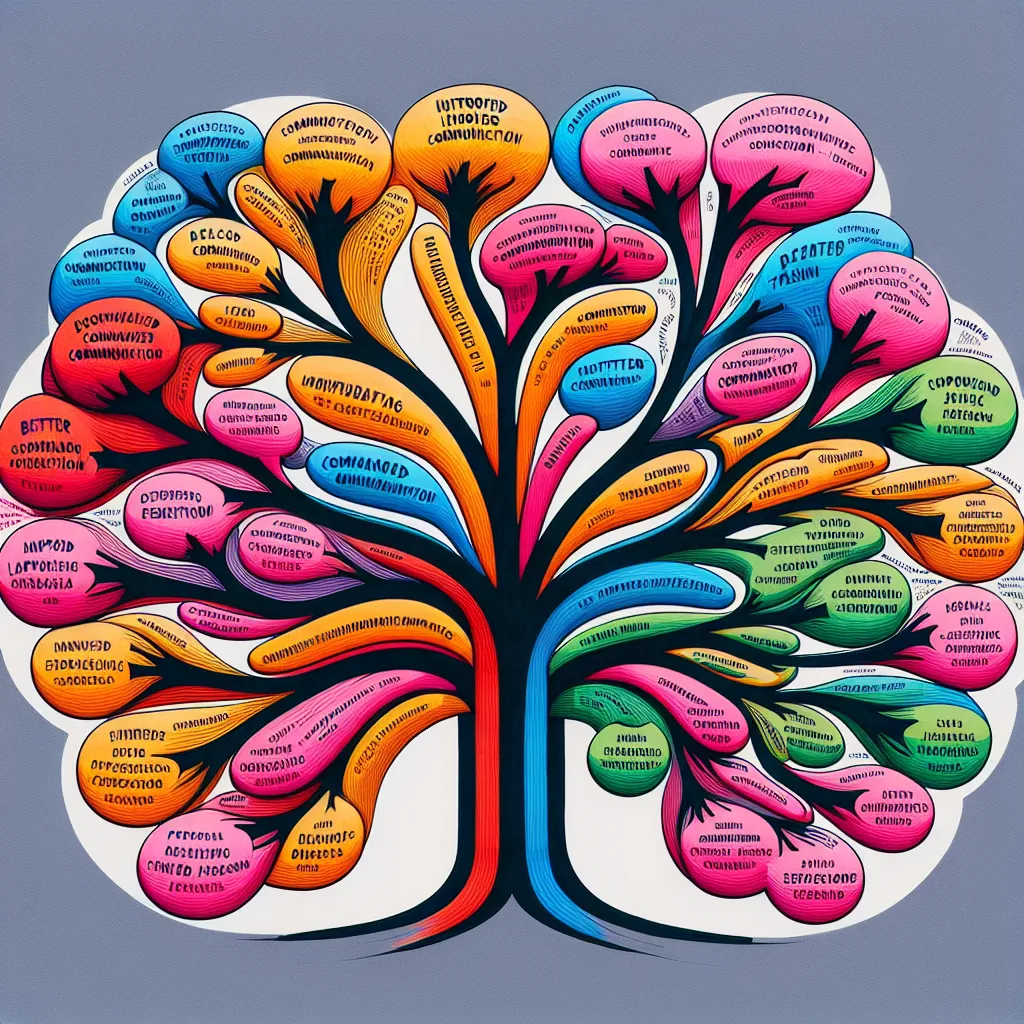Are you tired of translating every thought from your native language to English? Do you want to achieve fluency and express yourself naturally in English? Learning to think in English is a crucial step towards mastering the language. In this comprehensive guide, we’ll explore effective strategies and techniques to help you train your brain to think directly in English.
Why is Thinking in English Important?
Thinking in English is a game-changer for language learners. It allows you to:
- Speak more fluently and naturally
- Reduce mental translation time
- Improve your listening comprehension
- Enhance your overall language proficiency
When you think in English, you’re not just learning the language; you’re living it.
 English thought bubbles
English thought bubbles
Strategies to Start Thinking in English
1. Immerse Yourself in English
Surround yourself with English as much as possible:
- Watch English movies and TV shows without subtitles
- Listen to English podcasts and music
- Read English books, newspapers, and websites
- Change your device language settings to English
The more exposure you have to English, the more natural it becomes to think in the language.
2. Practice Inner Monologue in English
Start narrating your daily activities in English:
- Describe what you’re doing as you’re doing it
- Plan your day in English
- Express your thoughts and feelings in English
For example, instead of thinking “我需要去超市买牛奶” (I need to go to the supermarket to buy milk), practice thinking “I need to go to the supermarket to buy milk.”
3. Use an English-to-English Dictionary
When you encounter a new word, look it up in an English-to-English dictionary instead of translating it to your native language. This helps you understand the word in context and builds connections between English words.
Recommended English-to-English dictionaries:
- Cambridge Dictionary
- Oxford Learner’s Dictionary
- Merriam-Webster
4. Learn Vocabulary in Context
Instead of memorizing isolated words, learn phrases and sentences. This helps you understand how words are used naturally and makes it easier to think in English.
For instance, rather than just learning the word “implement,” learn phrases like:
- “implement a new policy”
- “implement changes in the organization”
- “implement a strategy”
5. Practice English Conversation
Engage in English conversations as often as possible:
- Join language exchange platforms like Tandem or HelloTalk
- Attend English language meetups in your area
- Find an English-speaking conversation partner
Regular practice will help you think on your feet in English.
Advanced Techniques for Thinking in English
1. Dream in English
While you can’t control your dreams, you can influence them by immersing yourself in English before bed:
- Read an English book before sleeping
- Listen to English podcasts as you fall asleep
- Write in an English journal before bed
Over time, you may start dreaming in English, which is a sign that the language is becoming more natural to you.
2. Develop English Associations
Train your brain to make direct associations between concepts and English words:
- When you see an object, think of its English name immediately
- Practice describing emotions and abstract concepts in English
- Play word association games in English
 English word web
English word web
3. Think in English Idioms and Expressions
Incorporate English idioms and expressions into your thoughts:
- Instead of thinking “It’s raining heavily,” think “It’s raining cats and dogs”
- Replace “I’m very busy” with “I’m swamped”
- Use “It’s a piece of cake” instead of “It’s very easy”
This helps you internalize the language and think more like a native speaker.
4. Solve Problems in English
When faced with a problem or decision:
- Analyze the situation in English
- List pros and cons in English
- Brainstorm solutions using English words and phrases
This exercise strengthens your ability to process complex thoughts in English.
5. Create English-Only Time Zones
Dedicate specific periods of your day to thinking exclusively in English:
- The first hour after waking up
- During your commute
- While exercising
Gradually increase these time zones as you become more comfortable.
Common Challenges and How to Overcome Them
1. Translating in Your Head
Challenge: You find yourself constantly translating from your native language to English.
Solution: Practice thinking in simple English sentences first. Gradually increase complexity as you become more comfortable.
2. Lack of Vocabulary
Challenge: You struggle to express yourself due to limited vocabulary.
Solution: Focus on learning high-frequency words and phrases. Use vocabulary apps like Anki or Quizlet for spaced repetition practice.
3. Difficulty with Abstract Concepts
Challenge: You find it hard to think about complex or abstract ideas in English.
Solution: Start by explaining simple concepts in English, then progressively move to more complex topics. Read about various subjects in English to expand your range.
4. Reverting to Native Language Under Stress
Challenge: You revert to thinking in your native language when stressed or tired.
Solution: Practice mindfulness techniques to stay aware of your thought language. Develop a trigger (like a wristband) to remind you to switch back to English.
Next Steps: Putting It All Together
- Set realistic goals: Start with thinking in English for 15 minutes a day and gradually increase.
- Keep an English thought journal: Write down your thoughts in English daily.
- Join English-speaking communities: Engage with native speakers online or in-person.
- Challenge yourself: Try explaining complex topics in English to yourself or others.
- Be patient and persistent: Remember, thinking in English is a skill that develops over time.
By consistently applying these strategies and techniques, you’ll find yourself naturally thinking in English more often. This shift will significantly improve your overall English proficiency, allowing you to communicate more fluently and confidently.
Remember, the key to success is consistent practice and immersion. Embrace the process, celebrate small victories, and don’t be afraid to make mistakes. With time and dedication, thinking in English will become second nature to you.




